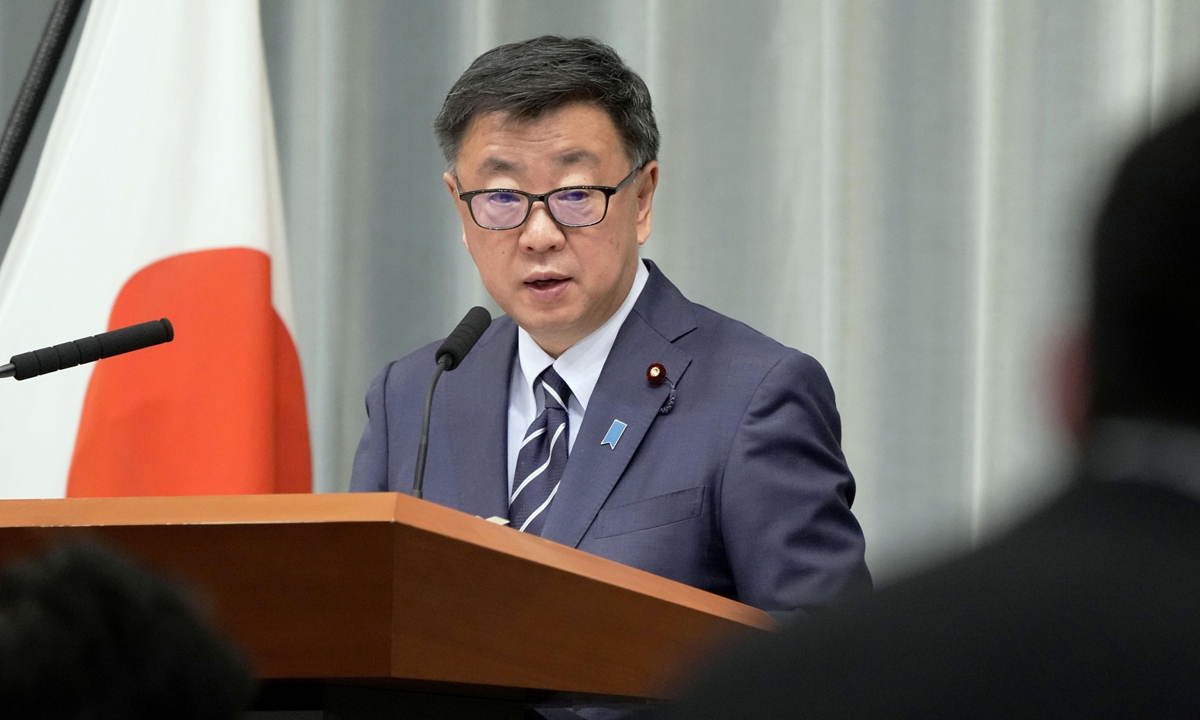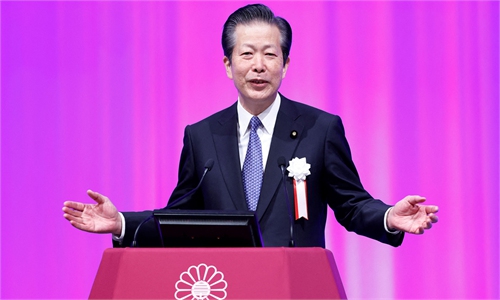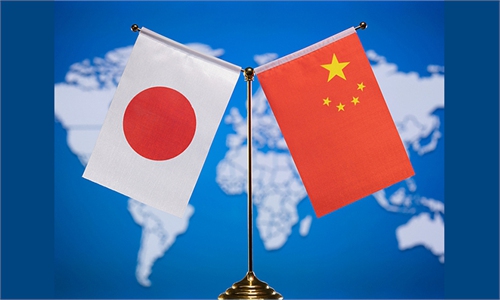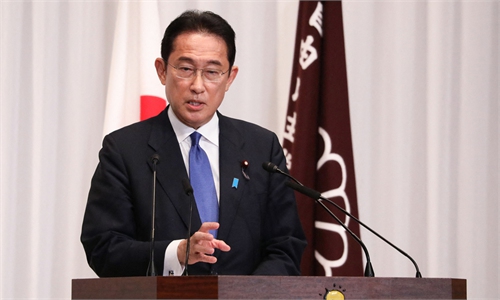Tokyo urged to heed rational voices on China after it hypes regular China-Russia air patrols

Japan's chief cabinet secretary Hirokazu Matsuno attends a press conference on December 23, 2021. Photo: IC
Japan on Thursday expressed "severe concerns" over China-Russia aerial strategic patrol in the Asia-Pacific region, and reportedly said it plans to designate China as its top regional challenge in its National Security Strategy by the end of 2022. Chinese experts said it reflects Tokyo's political opportunism amid recent positive signals in China-Japan relations. They urged Japan to listen to domestic rational voices on China rather than follow the US in containing China and ending up in a worse situation.
According to a Reuters report on Thursday, Japan will closely monitor the increasing cooperation between China and Russia with a sense of concern and decisively protect its territories, said Japanese Chief Cabinet Secretary Hirokazu Matsuno at a news conference after Chinese and Russian militaries conducted a joint aerial strategic patrol in the Asia-Pacific region on Wednesday.
Japan deliberately connecting itself to peaceful China-Russia joint patrols, which do not target other countries or a third party, is intended to create an excuse to treat China as a threat, Lü Chao, an expert on Korean Peninsula issues at the Liaoning Academy of Social Sciences, told the Global Times on Thursday.
Experts urged Japan to cherish the hard-won ties with China, which have seen warming signals recently. Despite recent positive signals in China-Japan relations, including a summit between the two leaders earlier this month, a bilateral military hotline to begin operations, as well as a possible China visit by the leader of the Japanese junior coalition partner Komeito, Japan has continued to provoke China and play up the so-called "China threat" theory both at home and abroad.
According to an NHK news report on Thursday, Japanese officials plan to refer to China first and North Korea second as regional security challenges in its upcoming National Security Strategy, which outlines Japan's basic diplomatic and defense policies and is expected to be revised by the end of this year. A reference to Russia will also likely be added, NHK reported.
The plan came after Japanese Prime Minister Fumio Kishida on Monday ordered Japan's defense budget to be increased to two percent of its GDP in fiscal 2027.
Lü said Japan's contradictory acts resulted from a situation in which its domestic anti-China forces are getting stronger under the political, economic and military impact of the US, despite some rational voices calling for peace and friendly engagement with China. Such a dangerous trend is harmful to Japan itself, the expert pointed out.
If Japan is bent on going its own way by increasing its military funding, provoking China on hot-button issues and hyping the "China threat" theory, the China-Japan relationship maintained through the efforts of generations of the two countries' leaders are likely to be damaged, the expert warned.




